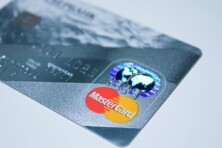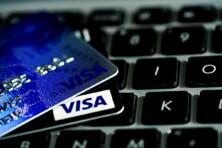Mastercard Send is a brand-new global push payment platform

Mastercard Send: a detailed review. Source: facebook.com
The drive for speed has boosted significant innovation in payment networks. This has resulted in the evolution of established networks. The well-established brands such as Mastercard operate trustworthy ubiquitous networks that have moved bulk amounts of money for years. It is now leveraging this network to join the real-time payments revolution.
Mastercard Send is a brand-new global push payment platform that enables both domestic transfers in the USA and Singapore as well as remittances except for in Cuba, Iran, North Korea, Sudan, and Syria. It connects organizations and individuals providing seamless integration to any system with omnichannel APIs. Funds can be sent to bank cards or accounts, mobile wallets and cash-out facilities in around 100 countries.
Many companies prefer to use this API both because of the trustworthiness and reputation of the Mastercard brand and its simple integration. Thanks to the API, the user gets the opportunity to perform an action without leaving the company’s website. The company, on the other hand, doesn’t have to develop its own unique solution. It is often easier and safer to resort to a ready-made interface especially when it’s developed by a major financial player. In particular, Mastercard is securing the entire payments ecosystem with EMV, end-to-end encryption, tokenization and authentication, among other innovations.
How it works
Real-time or near-real-time push payment systems offer a sender to submit the credit card number to the chosen payment platform, which then pays the receiver’s bank account, mobile wallet or another available payment form. The receiver may never handle or even see the sender’s account data. Reconciliation happens automatically at both ends because the payment amount always matches the invoice. Since the buyer is authorizing and launching the transaction, it is processed quicker, and the proceeds are safe to spend immediately.
The third-party, single-source Mastercard Send solution allows businesses to push almost instant payments to their partners or customers via the few payment instruments: any major bank accounts or debit cards, and mobile wallets. Recipients can get paid rapidly without providing bank routing data. It also enables businesses, governments, and non-profit organizations to disburse claim funds, social benefits, tax refunds, on-demand payroll payments or payouts.
It should be noted though that MasterCard does not transmit funds. All funds are transmitted by the licensed financial institution for whom they provide data processing services. Therefore, any fees you pay are charged by the organization, business or government you transact with. Mastercard says its exchange rates are competitive. Yet the rate you get ultimately depends on the service for international payments you’re using rather than Mastercard Send itself.
Where is Mastercard Send used?
During its short 4-year existence, the service has earned both attention and trust from the major industry players.
The most famous business partner that has used Mastercard Send’s API from its very beginning is GooglePay. From the early days of the service, this digital wallet was using Mastercard Send for wallet cash-outs and P2P transfers. In a little while, PayPal began using Mastercard push payments for wallet cash-out too.
The solution is also integral in delivering ubiquity for Zelle – a P2P program launched by many banks in the U.S. If the recipient is already enrolled with Zelle, the money goes directly into their bank account within a few minutes. If they aren’t enrolled yet, they get a notification explaining how to receive the money simply and quickly. Zelle can be installed as a separate application or be integrated into a banking app.
Allstate Corporation, the largest publicly held personal lines property and casualty insurer in America, has also embraced the ability to send insurance payouts to its customers faster than ever. Their Quick Card Pay option is based on the Send’s API.
Their experience with quick and safe insurance payouts has helped in emergency situations as well. Thus, in 2017, Mastercard worked with the American Red Cross to enable Houston area residents and others affected by Hurricane Harvey to receive emergency aid payouts to facilitate cleanup and get communities back on their feet.
Ride-sharing services such as Uber and Lyft use the API to send on-demand payrolls to their drivers. Therefore, their employees shouldn’t have to wait until the end of the month to get what they have earned. They can initiate the payment request after each day of work or even a single ride. Considering the fact that driving is only a side-gig for many of those workers, it is a very convenient and flexible solution.
Berkshire Hathaway Travel Protection, the US-based travel insurance company, has integrated Mastercard Send into paying travel insurance claims.
In Bangladesh, MasterCard has joined forces with Western Union, bKash and BRAC bank to allow bKash’s 22-million customer base to use mobile phones to receive remittances that come from outside the country directly into their bKash accounts. Alternatively, they can choose a physical pickup of cash remittances at Western Union agent locations.
Last year, Mastercard Send launched its activities in the United Kingdom. It became possible once it completed the acquisition of Vocalink. The service provided and operated the central payments processing infrastructures that power the U.K. economy. Now the combined business is the first global network to support both bank account and card-based payments, offering more choice to its customers. Mastercard Send was able to connect to the Faster Payments network, which, in turn, enabled payments across such cases as B2C and P2P disbursements. Mastercard enlisted Starling Bank, a challenger bank, as the strategic partner for settlement services in the U.K.
The company’s partnership with Stripe is speeding up payments for marketplaces. The instant payouts capability has become available to all U.S.-based sellers that use marketplaces in the U.S. supported by Stripe Connect, such as Postmates, Instacart, and iCracked.
The platform has also enabled funds receipt for customers of Wells Fargo’s Treasury Management and Merchant services programs. It is granting businesses, merchants, government agencies, nonprofits, financial institutions, and other organizations the ability to digitally send money to consumers and smaller organizations that would otherwise use cash or cheque.
Western Union was the money transfer industry’s first to offer the debit card-enabled service via the Mastercard Send platform in the USA. The integration enables WU to deliver funds to virtually all U.S. debit cards, including non-Mastercard cards.
This April, Mastercard and BMO Bank of Montreal announced that BMO is implementing Mastercard Send to better serve its Canadian-based business and commercial banking clients. BMO, the 8th largest bank by assets, in North America, said it is joining a growing list of global banks working with Mastercard to offer their 12 million clients a better way to send money internationally. Initially, the companies will focus on bank account transfers but will eventually expand to include payments to mobile wallets and cards around the globe.
SEE ALSO:









